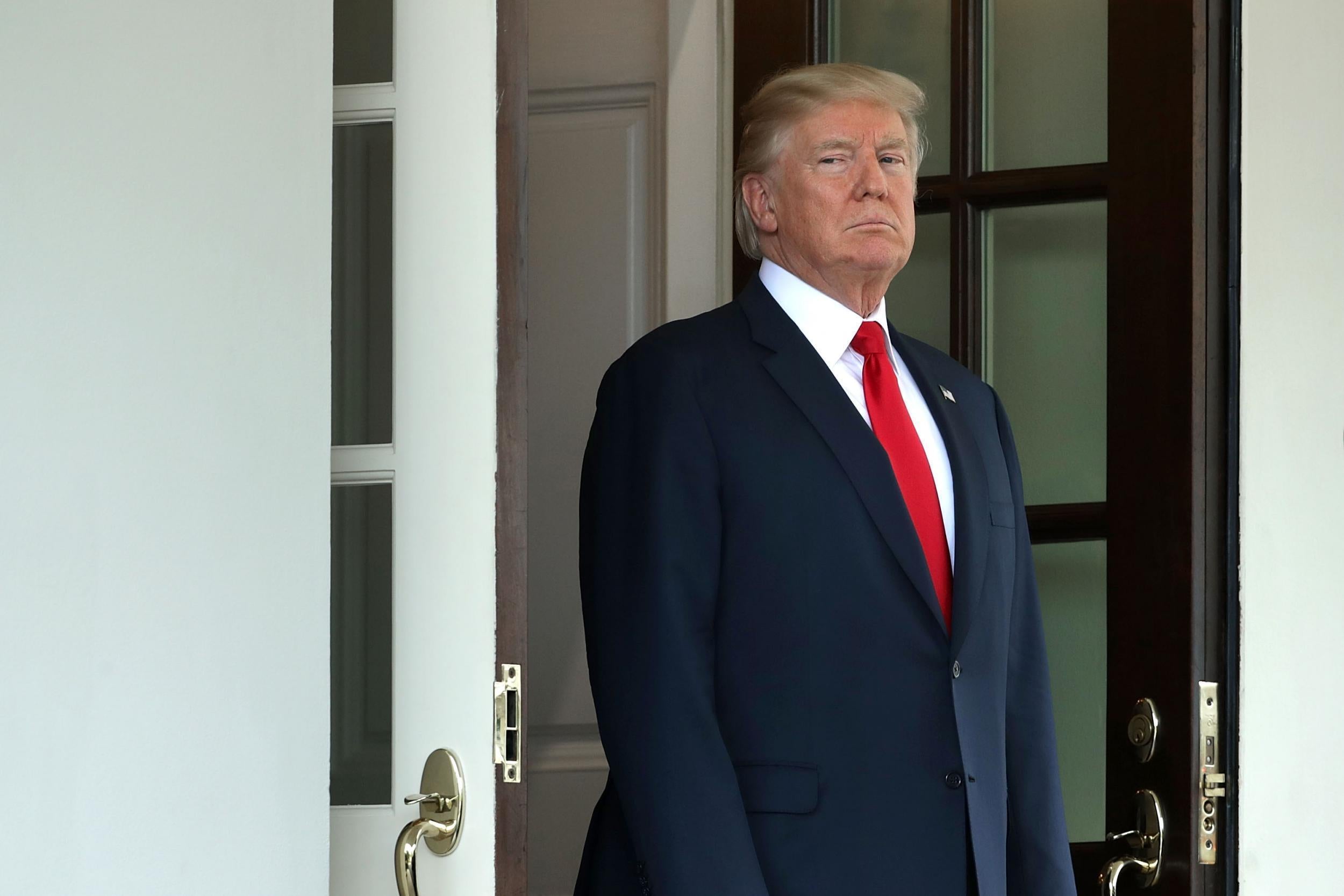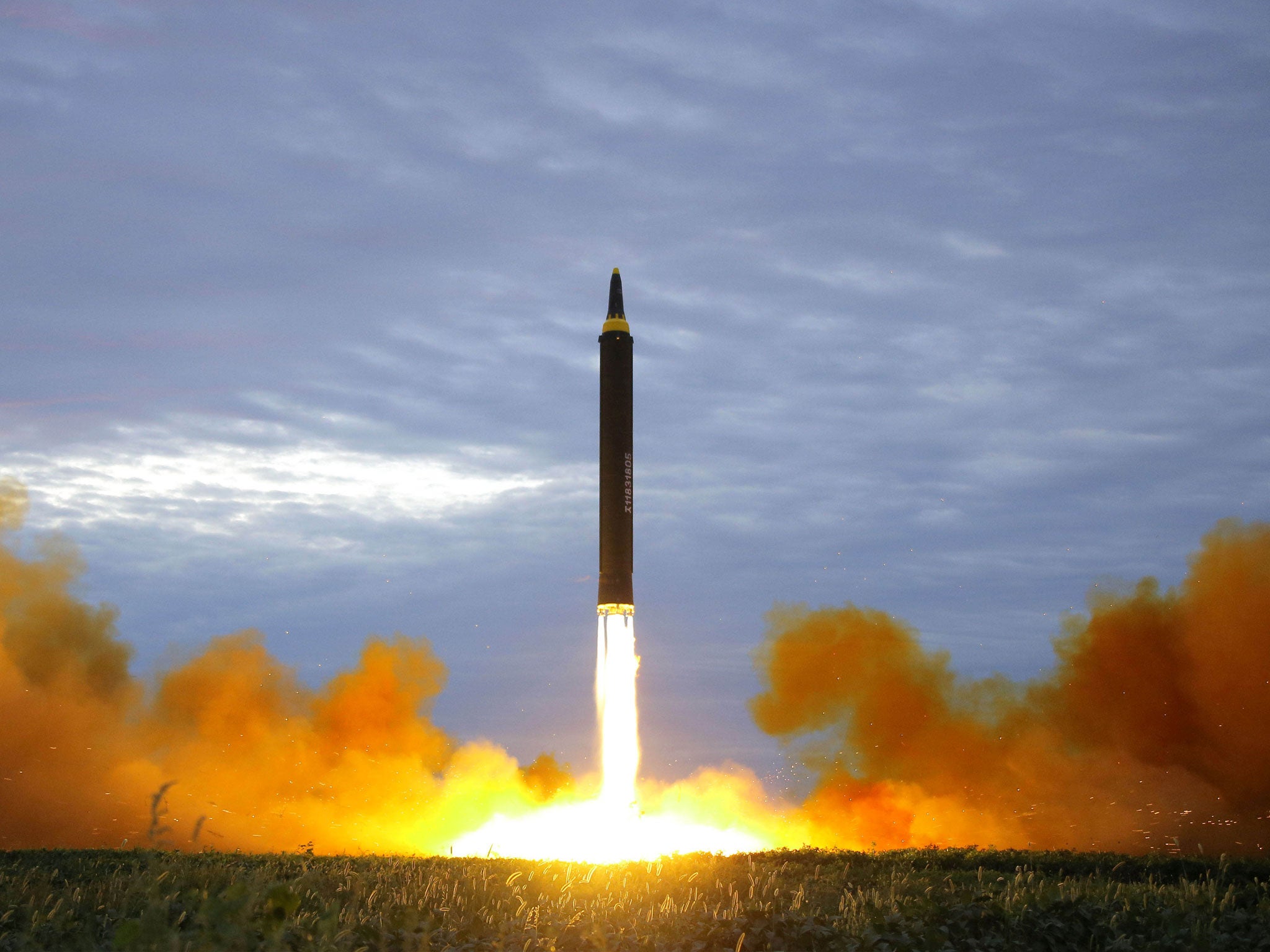Donald Trump says 'talking is not the answer' in North Korea nuclear standoff
The comments come after North Korea test-launched a missile over Japan

Your support helps us to tell the story
From reproductive rights to climate change to Big Tech, The Independent is on the ground when the story is developing. Whether it's investigating the financials of Elon Musk's pro-Trump PAC or producing our latest documentary, 'The A Word', which shines a light on the American women fighting for reproductive rights, we know how important it is to parse out the facts from the messaging.
At such a critical moment in US history, we need reporters on the ground. Your donation allows us to keep sending journalists to speak to both sides of the story.
The Independent is trusted by Americans across the entire political spectrum. And unlike many other quality news outlets, we choose not to lock Americans out of our reporting and analysis with paywalls. We believe quality journalism should be available to everyone, paid for by those who can afford it.
Your support makes all the difference.Donald Trump has said "talking is not the answer" to the current diplomatic crisis with North Korea, after Pyongyang launched a missile over one of Japan's main islands, ratcheting up tensions between the totalitarian state and the international community.
"The US has been talking to North Korea, and paying them extortion money, for 25 years," the US President tweeted. "Talking is not the answer!"
Days before, the North Korean regime had taken the unprecedented step of launching a missile over the Japanese island of Hokkaido. The launch followed several other missile tests – and rapid advances in North Korean military technology – in the weeks proceeding.
On Wednesday morning, North Korean state media proclaimed the launch a "first step" toward military operations in the Pacific, and a "meaningful prelude" to containing the US territory of Guam, referring to the island as an "advanced base of invasion". Pyongyang's official Korean Central News Agency said Kim Jong-un, who was present for the test, expressed "great satisfaction" in the launch. Mr Kim was photographed smiling and laughing during the test.
Mr Trump had threatened to rain "fire and fury" on North Korea in response to their earlier tests, but had recently toned down his rhetoric. At a campaign rally last week, he told supporters that Mr Jong-un was "starting to respect us".
“And maybe, probably not, but maybe something positive can come about," he said.
The 29 August missile launch changed that. South Korea responded by dropping eight heavy bombs near the North Korean border on Tuesday, in what it called a show of "overwhelming force". Mr Trump declared ominously that "all options are on the table".
"The world has received North Korea’s latest message loud and clear," he said in a statement. "This regime has signalled its contempt for its neighbours, for all members of the United Nations, and for minimum standards of acceptable international behaviour."
A South Korean presidential spokesman said on Wednesday that President Moon Jae-in and Japanese Prime Minister Shinzo Abe now believe "pressure on North Korea should be raised to its limit so that North Korea will voluntarily come to the table for dialogue".
Nikki Haley, the US ambassador to the UN, also pushed for "something serious to happen" in regards to the conflict. The UN Security Council has already voted to impose an estimated $1bn in sanctions against the isolated North Korean regime.

Others, however, have preached restraint. US Defence Secretary James Mattis directly contradicted Mr Trump's tweets, telling South Korean officials that "we're never out of diplomatic solutions".
Secretary of State Rex Tillerson called the missile launch a “provocative act”, but said the US will continue to seek a peaceful resolution with the North Korean regime.
The United States, he said, would pursue a "peaceful pressure campaign;" collaborating with allies and working to bring Pyongyang to the negotiating table.
China's foreign ministry spokeswoman Hua Chunying said China also saw an opportunity for peace talks, though she acknowledged the crisis was “approaching a critical juncture”. Russian UN Ambassador Vassily Nebenzia called Mr Trump's rhetoric on the situation "troubling".
And North Korea, it seems, has left the door open for a peaceful resolution.
“The [Democratic People's Republic of Korea] will continue to watch the US demeanour as already declared and decide its future action according to them,” state media said on Tuesday.
Subscribe to Independent Premium to bookmark this article
Want to bookmark your favourite articles and stories to read or reference later? Start your Independent Premium subscription today.
Join our commenting forum
Join thought-provoking conversations, follow other Independent readers and see their replies
Comments